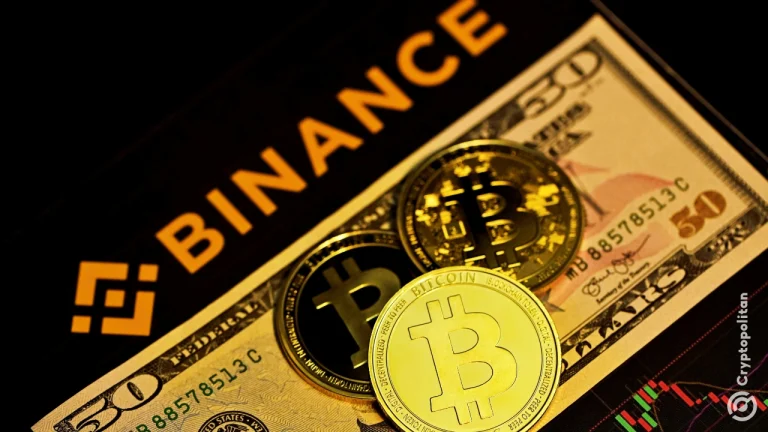Key Takeaways
- Binance.US has refuted claims by US Senator Chris Murphy that its listing of the USD1 stablecoin was influenced by political favors related to Donald Trump.
- Senator Murphy alleged that the listing was payback for a presidential pardon granted to Binance CEO Changpeng Zhao.
- Binance.US stated that all listing decisions undergo a rigorous due diligence and legal review process, emphasizing that the USD1 listing was a standard business decision.
- The exchange highlighted that USD1 and its associated token WLFI are already available on over 20 other major exchanges.
- The controversy brings to light ongoing debates about potential conflicts of interest and the politicization of business decisions within the cryptocurrency industry.
Binance.US Defends Listing Decision Amidst Political Accusations
Binance.US has publicly addressed and denied allegations suggesting it favored assets linked to former President Donald Trump, specifically concerning the recent listing of the stablecoin USD1. The crypto exchange responded to claims made by US Senator Chris Murphy, who asserted that the listing was an act of reciprocation for a presidential pardon granted to Binance CEO Changpeng Zhao (CZ).
Senator Murphy took to X (formerly Twitter) to express his views, claiming that Binance.US began promoting Trump-affiliated crypto assets just one week after Trump pardoned Zhao. Zhao had previously been convicted for violations of U.S. anti-money laundering laws. Murphy characterized the situation as indicative of a full-time, 24/7 corruption machine within the White House.
In its official statement, Binance.US reiterated its commitment to a thorough and impartial listing process. The exchange emphasized that every asset, whether a stablecoin, a new project, or a meme token, undergoes comprehensive due diligence and legal scrutiny before being made available to users.
Business Decision Unfairly Politicized, States Binance.US
Binance.US pointed out that both USD1 and its associated token, WLFI, are already listed and trading on more than 20 other prominent cryptocurrency exchanges, including well-known platforms like Coinbase, Robinhood, and Kraken. This fact underscores that the decision was not unique to Binance.US.
The exchange stated, These assets have both been approved for some time by our listing committee in its ordinary course of business. To be clear, this was a business decision on the part of Binance US and nothing more. It’s unfortunate that even routine business decisions are now unfairly politicized by our elected officials. Binance.US views the politicization of standard business operations as detrimental to the industry.
The listing was intended to expand the range of stablecoin options available to US traders. However, the timing, following Zhao’s pardon, has drawn significant attention and criticism from those who believe it highlights the undue influence of powerful crypto interests.
Changpeng Zhao, the co-founder of Binance, pleaded guilty in 2023 to failing to establish an effective anti-money laundering program. As part of a settlement, Binance agreed to pay over $4.3 billion in penalties. Zhao personally paid a $50 million fine and served four months in federal prison before his release last year.
Concerns Over Potential Conflicts of Interest
Echoing Senator Murphy’s sentiments, Representative Ro Khanna of California also voiced concerns regarding potential corruption. In a media interview, Khanna alleged that Zhao, having been convicted for issues including alleged money laundering and funding irregularities, petitioned for a pardon from Donald Trump after allegedly funneling money to support Trump’s cryptocurrency stablecoin. Khanna stated, Donald Trump gives him a pardon while he’s basically financing Donald Trump’s cryptocurrency stablecoin. It is so illegal. It is right in our faces.
This controversy raises questions about ethical boundaries and potential conflicts of interest, particularly given the history of Donald Trump’s business dealings while in public office.
The pardon of Zhao is corrupt.
I explain simply what’s going on.
I am today introducing legislation to ban the president, his family, members of Congress, and all elected officials from trading crypto or stocks. @unusual_whales has been sounding the alarm on this for years. pic.twitter.com/OgibgdnqkK
— Ro Khanna (@RoKhanna) October 27, 2025
Trump’s Business Holdings and Ethical Precedents
During his first term, Donald Trump opted against divesting his business assets or placing them in a blind trust, a move that deviated from established presidential norms aimed at preventing conflicts of interest. Instead, he placed his holdings in a trust overseen by his family, with himself as the sole beneficiary.
Throughout his presidency, Trump faced numerous accusations of leveraging his office for personal financial gain. Reports indicated that foreign and domestic entities, including representatives from 20 foreign governments, visited Trump’s properties, and the Secret Service incurred significant expenses lodging at his hotels.
Even after leaving office, his business interests have continued to be a subject of scrutiny. While he agreed to transfer his assets to a trust managed by his sons, critics maintain that his decisions may still directly benefit his companies.
Such unprecedented disregard for time-honored ethical boundaries was shocking at the time. Now it looks merely quaint, commented Danielle Caputo, senior legal counsel for ethics at the Campaign Legal Center. With this new administration, there’s not just a disregard for ethics rules, there’s contempt.
Expert Summary
Binance.US has strongly denied claims that its decision to list the USD1 stablecoin was politically motivated, stating it was a standard business operation based on rigorous due diligence. The exchange finds the politicization of routine decisions by elected officials to be unfortunate. However, the controversy highlights ongoing debates surrounding ethical governance and potential conflicts of interest in the cryptocurrency industry, especially concerning transactions involving politically connected figures.

